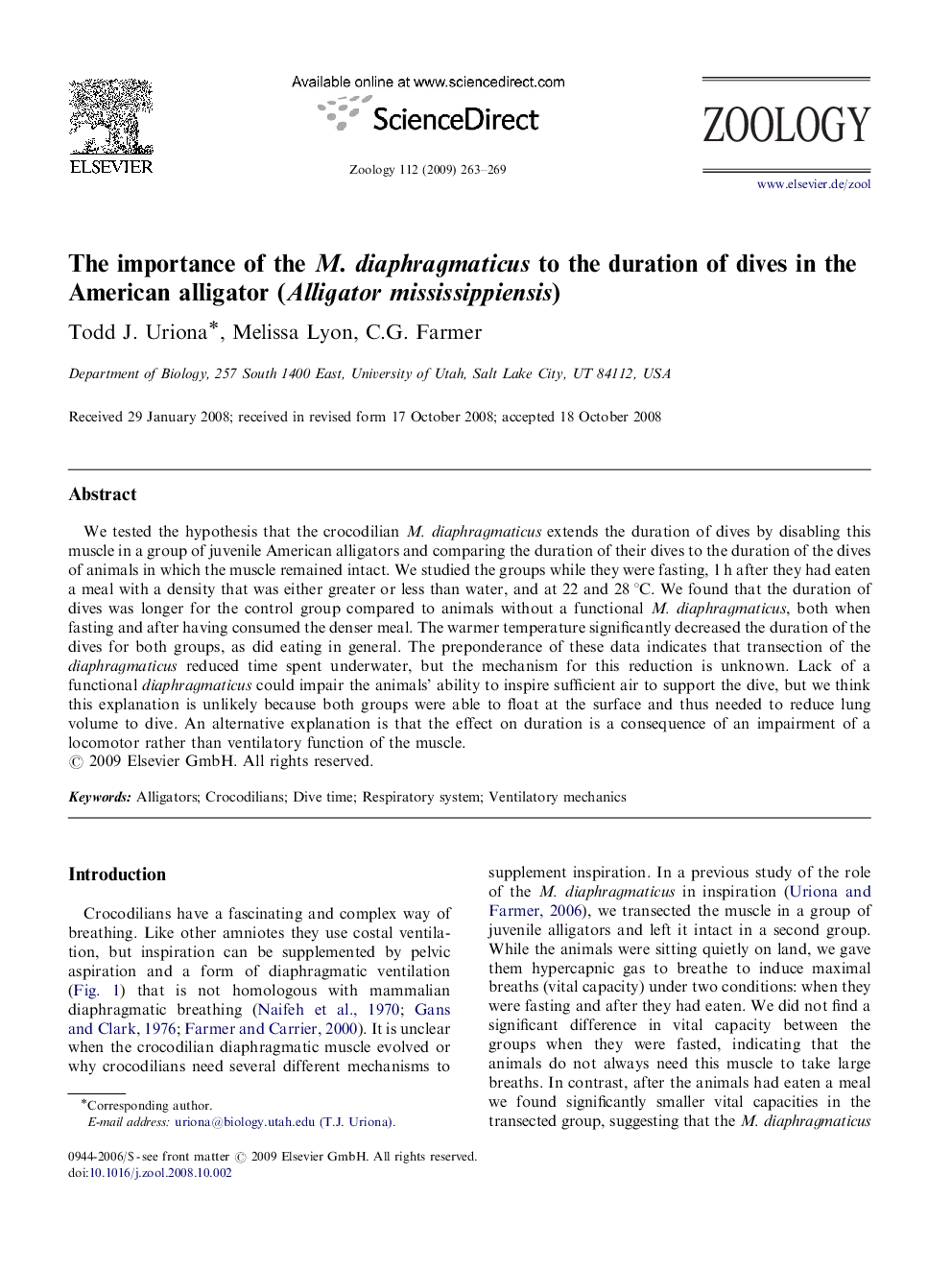| Article ID | Journal | Published Year | Pages | File Type |
|---|---|---|---|---|
| 2791312 | Zoology | 2009 | 7 Pages |
We tested the hypothesis that the crocodilian M. diaphragmaticus extends the duration of dives by disabling this muscle in a group of juvenile American alligators and comparing the duration of their dives to the duration of the dives of animals in which the muscle remained intact. We studied the groups while they were fasting, 1 h after they had eaten a meal with a density that was either greater or less than water, and at 22 and 28 °C. We found that the duration of dives was longer for the control group compared to animals without a functional M. diaphragmaticus, both when fasting and after having consumed the denser meal. The warmer temperature significantly decreased the duration of the dives for both groups, as did eating in general. The preponderance of these data indicates that transection of the diaphragmaticus reduced time spent underwater, but the mechanism for this reduction is unknown. Lack of a functional diaphragmaticus could impair the animals’ ability to inspire sufficient air to support the dive, but we think this explanation is unlikely because both groups were able to float at the surface and thus needed to reduce lung volume to dive. An alternative explanation is that the effect on duration is a consequence of an impairment of a locomotor rather than ventilatory function of the muscle.
